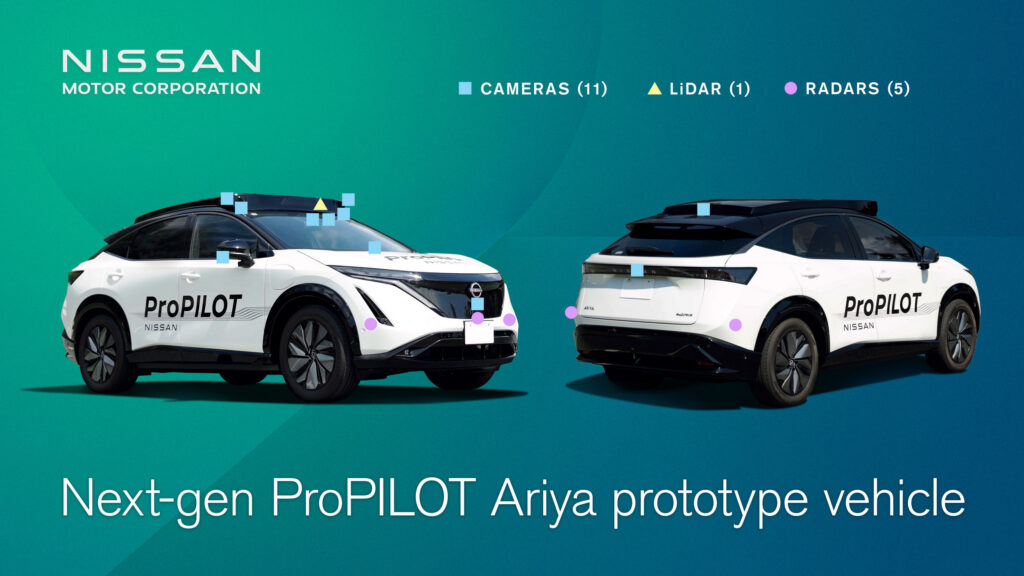New Autonomous Driving System from Nissan
Nissan has introduced the next generation of its semi-autonomous ProPILOT driving system, with its launch in Japan planned for the fiscal year 2027, ending on March 31, 2028. This system is significantly more advanced than previous versions and uses next-generation lidars and Wayve AI Driver software.
Capability Demonstration in Tokyo
The system was recently demonstrated in Tokyo on a fleet of Ariya prototypes equipped with 11 cameras, five radars, and one lidar sensor. The latter is mounted on the roof and can detect objects at a greater distance compared to cameras. According to Nissan, this enhances safety during high-speed and night driving.
Tetsuya Iijima, Nissan’s General Manager of Driver Support Technology, stated: “This is similar to Tesla’s full self-driving, but our system might be a little smarter.” He added that the system is designed to function better on the narrow, pedestrian-crowded streets of the Japanese capital.
The Role of Artificial Intelligence
In addition to using lidar, the new ProPILOT system applies artificial intelligence to process data from sensors. The manufacturer claims that the system is capable of “assessing the environment and anticipating future events, as well as the impact of its own actions on the surroundings, allowing it to drive safely like an experienced driver.”
High-speed processing capabilities enable the artificial intelligence to instantly react to sudden changes and understand how “entire road scenes are evolving, rather than just reacting to individual objects.”
Expanding Functionality Beyond Highways
This system significantly expands capabilities compared to previous ProPILOT versions, which were primarily oriented towards highways. The new development is adapted for complex urban conditions with dense traffic and numerous pedestrians.
Eiichi Akashi, Nissan’s Technical Director, noted: “The new ProPILOT technology will provide the feeling that an experienced driver is holding the steering wheel. It will adapt to complex road conditions and provide greater confidence and safety for all road users.”

Technical Features and Demonstration
The company emphasized that the new system will belong to the second level of autonomy, requiring the driver to monitor its operation and be ready to intervene if necessary. During the demonstration, the prototypes performed turns without driver input, executed automatic lane changes, and stopped to yield to pedestrians.
The development of autonomous driving systems continues to gain momentum, and Nissan’s approach combining lidars and artificial intelligence could become key for safe operation in dense urban traffic conditions. Although the system is currently only available in Japan, its successful implementation could influence global automotive safety standards and become an important step towards full vehicle autonomy.


 by
by 
